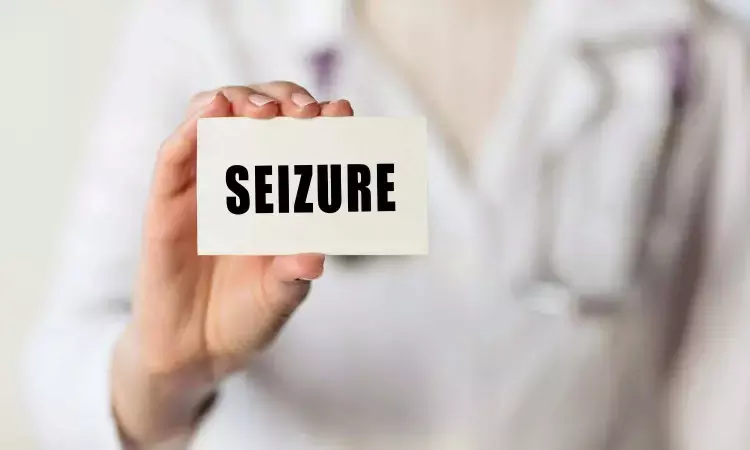- Home
- Medical news & Guidelines
- Anesthesiology
- Cardiology and CTVS
- Critical Care
- Dentistry
- Dermatology
- Diabetes and Endocrinology
- ENT
- Gastroenterology
- Medicine
- Nephrology
- Neurology
- Obstretics-Gynaecology
- Oncology
- Ophthalmology
- Orthopaedics
- Pediatrics-Neonatology
- Psychiatry
- Pulmonology
- Radiology
- Surgery
- Urology
- Laboratory Medicine
- Diet
- Nursing
- Paramedical
- Physiotherapy
- Health news
- Fact Check
- Bone Health Fact Check
- Brain Health Fact Check
- Cancer Related Fact Check
- Child Care Fact Check
- Dental and oral health fact check
- Diabetes and metabolic health fact check
- Diet and Nutrition Fact Check
- Eye and ENT Care Fact Check
- Fitness fact check
- Gut health fact check
- Heart health fact check
- Kidney health fact check
- Medical education fact check
- Men's health fact check
- Respiratory fact check
- Skin and hair care fact check
- Vaccine and Immunization fact check
- Women's health fact check
- AYUSH
- State News
- Andaman and Nicobar Islands
- Andhra Pradesh
- Arunachal Pradesh
- Assam
- Bihar
- Chandigarh
- Chattisgarh
- Dadra and Nagar Haveli
- Daman and Diu
- Delhi
- Goa
- Gujarat
- Haryana
- Himachal Pradesh
- Jammu & Kashmir
- Jharkhand
- Karnataka
- Kerala
- Ladakh
- Lakshadweep
- Madhya Pradesh
- Maharashtra
- Manipur
- Meghalaya
- Mizoram
- Nagaland
- Odisha
- Puducherry
- Punjab
- Rajasthan
- Sikkim
- Tamil Nadu
- Telangana
- Tripura
- Uttar Pradesh
- Uttrakhand
- West Bengal
- Medical Education
- Industry
Antiseizure Medications Show No Significant Impact on Epilepsy Risk After Brain Abscess: JAMA

A new study published in the Journal of American Medical Association found that the use of antiseizure medications did not substantially alter the likelihood of epilepsy in patients with brain abscesses 90, 135, or 180 days after initiation.
A brain abscess, which is frequently caused by an infectious agent, is an enclosed region of pus inside the brain. Repeated unprovoked seizures, or epilepsy, are a typical side effect of brain abscesses. Given that brain abscess survivors frequently experience seizures and epilepsy, therapies that stop these conditions from developing should be found.
Clinical recommendations for the treatment of brain abscesses, including whether antiseizure drugs (ASMs) should be started to avoid epilepsy, were published by the European Society of Clinical Microbiology and Infectious Diseases. Thus, this study was set to determine whether starting ASMs is linked to a lower risk of epilepsy.
Utilizing US commercial insurance claims data from October 1, 2016, to June 30, 2022, this retrospective cohort study simulated a target trial and followed up with patients for 180 days. The International Statistical Classification of Diseases, Tenth Revision, Clinical Modification (ICD-10-CM) codes linked to an acute care visit were used to limit the research population to individuals with a diagnosis of brain abscess.
Only patients who had been enrolled for at least a year before and who were at least 18 years old at the time of the brain abscess were included. The period of statistical study was May through December of 2024. Levetiracetam, valproate, and phenytoin were the research ASMs that were first chosen. ASM initiation within a 45-day grace period was compared to no ASM initiation using a clone-censor-weight methodology.
The mean (SD) age of the 572 patients included was 61.5 (16.6) years, and 353 (61.7%) of them were men. Within the first 30 days, 83 (88.3%) of the patients in the therapy group started taking ASMs. During follow-up, 129 individuals (22.5%) experienced seizures.
The likelihood of epilepsy incidence at each follow-up time point did not change statistically significantly in terms of risk (RD at 90 days, -0.02% [95% CI, −4.9% to 4.8%]; RD at 135 days, 1.9% [95% CI, −5.0% to 8.5%]; RD at 180 days, 3.5% [95% CI, –4.4% to 10.8%]). Also, sensitivity analysis supported the main conclusions. Overall, the replicated trial did not find that starting ASMs was linked to a lower risk of epilepsy in this cohort study of brain abscess survivors.
Source:
Nielsen, V. M., Klompas, M., Manjourides, J., & Smith, L. H. (2025). Initiation of antiseizure medications in patients with brain abscess. JAMA Network Open, 8(8), e2524557. https://doi.org/10.1001/jamanetworkopen.2025.24557
Neuroscience Masters graduate
Jacinthlyn Sylvia, a Neuroscience Master's graduate from Chennai has worked extensively in deciphering the neurobiology of cognition and motor control in aging. She also has spread-out exposure to Neurosurgery from her Bachelor’s. She is currently involved in active Neuro-Oncology research. She is an upcoming neuroscientist with a fiery passion for writing. Her news cover at Medical Dialogues feature recent discoveries and updates from the healthcare and biomedical research fields. She can be reached at editorial@medicaldialogues.in
Dr Kamal Kant Kohli-MBBS, DTCD- a chest specialist with more than 30 years of practice and a flair for writing clinical articles, Dr Kamal Kant Kohli joined Medical Dialogues as a Chief Editor of Medical News. Besides writing articles, as an editor, he proofreads and verifies all the medical content published on Medical Dialogues including those coming from journals, studies,medical conferences,guidelines etc. Email: drkohli@medicaldialogues.in. Contact no. 011-43720751


